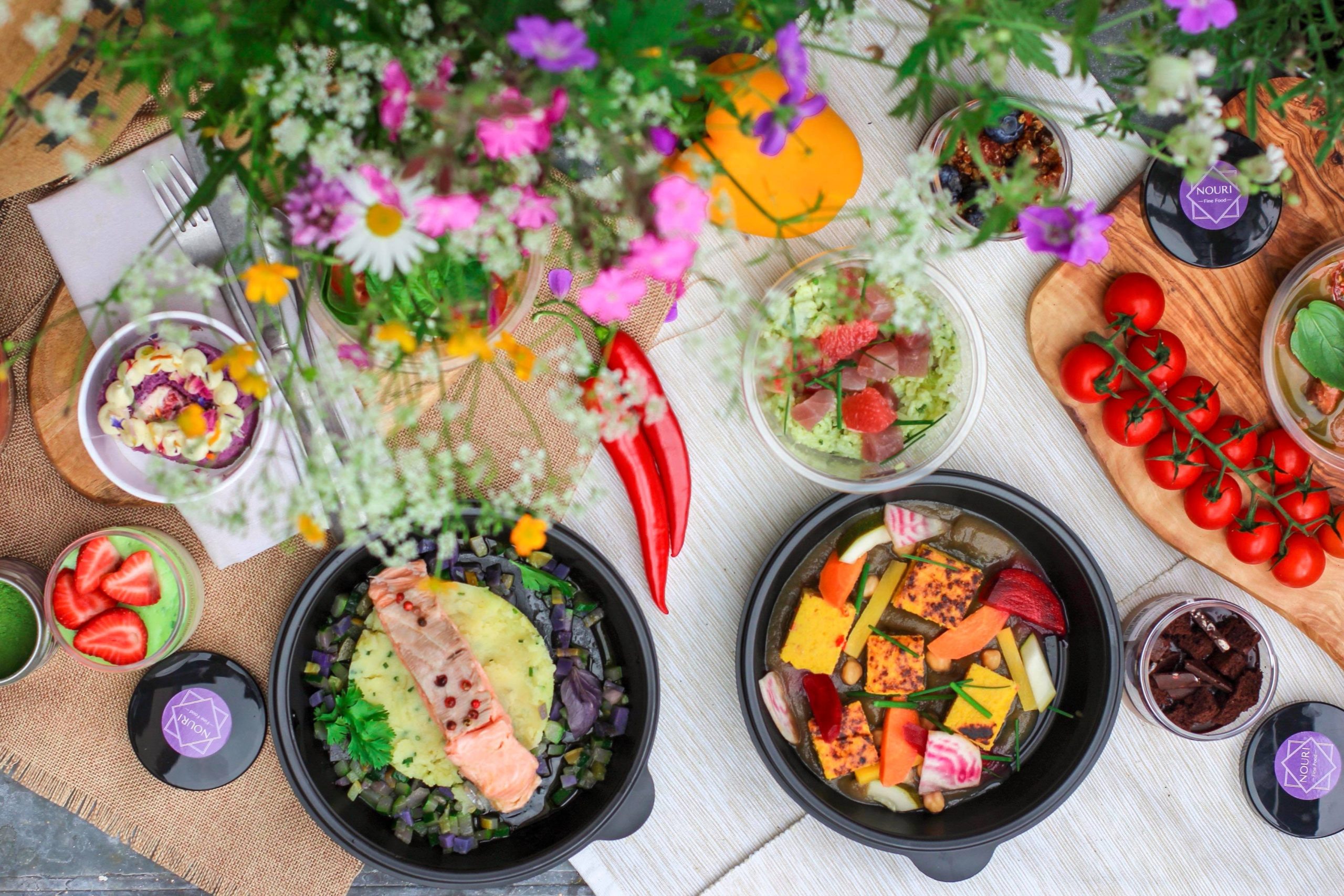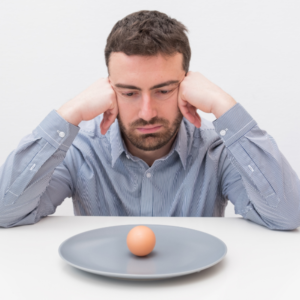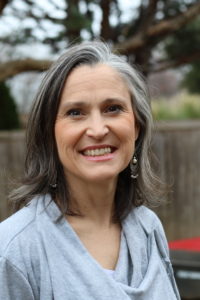
The Joy of Feasting
March 30, 2021
 We hear a lot in the church about fasting. We need to fast, we know the rules about fasting and we do it when we are told to do it. But, what about feasting? When are we supposed to feast? What IS feasting and how do you feast? A few people, books and events in my life have shaped my new understanding of feasting.
We hear a lot in the church about fasting. We need to fast, we know the rules about fasting and we do it when we are told to do it. But, what about feasting? When are we supposed to feast? What IS feasting and how do you feast? A few people, books and events in my life have shaped my new understanding of feasting.
Firstly, of course, the Theology of the Body informed my understanding of fasting and feasting: “The body and only the body is capable of making visible what is invisible, the spiritual and the divine.” -Pope St John Paul II
What does the body make visible from feasting? In her book, Theology of the Body Rosary Meditations, Debbie Staresinic says,
“The entire purpose of our life here on
earth is to learn to love and be loved as God loves and so prepare ourselves to share in his eternal life. Every day is an opportunity to put this into practice. Our earthly life can be regarded as ‘marriage prep’ for the eternal wedding feast in heaven.“
Everyone will be filled to the brim in heaven, but if we are not making an effort to empty ourselves each and every day presently, how much of the feast will we be able to receive? We will be indeed be filled, but only to the degree that we have emptied ourselves on earth. Our bodies make this visible in the fasting and feasting calendar of the church! We must prepare ourselves for heaven by emptying ourselves on earth. We cannot receive the gift if we are filled to capacity. Our hope is in the eternal wedding feast and when we live our lives accordingly, we are a witness to that fact.
 Christopher West said, “If you are always fasting, you are never fasting, if you are always feasting, you are never feasting.” I have observed the two days of fasting in Lent for most of my life, but other than that minimal effort, I have not fasted. The book “Eat, Fast, Feast” by Jay Richards gave me an understanding of the Fasting and Feasting history of the church. It helped me comprehend the importance of regular fasting and feasting when appropriate. When I began to understand WHY we fast and WHY we feast, everything changed. We have to keep our eyes on heaven. Let’s look at what Jesus had to say about fasting and feasting:
Christopher West said, “If you are always fasting, you are never fasting, if you are always feasting, you are never feasting.” I have observed the two days of fasting in Lent for most of my life, but other than that minimal effort, I have not fasted. The book “Eat, Fast, Feast” by Jay Richards gave me an understanding of the Fasting and Feasting history of the church. It helped me comprehend the importance of regular fasting and feasting when appropriate. When I began to understand WHY we fast and WHY we feast, everything changed. We have to keep our eyes on heaven. Let’s look at what Jesus had to say about fasting and feasting:
”Now John’s disciples and the Pharisees were often fasting. So people came to Jesus and asked, ‘Why don’t Your disciples fast like John’s disciples and those of the Pharisees?’ Jesus replied, ‘How can the guests of the bridegroom fast while He is with them? As long as He is with them, they cannot fast. But the time will come when the bridegroom will be taken from them; then they will fast.” —Mark 2:18-19
“The Sabbath was made for man, and not man for the Sabbath. So the Son of Man is Lord, even of the Sabbath.”– Mark 2:27-28 Jesus – Bridegroom, feasting
And from the Catechism:
“Through his parables he invites people to the feast of the kingdom, but he also asks for a radical choice: to gain the kingdom, one must give everything. Words are not enough, deeds are required. The parables are like mirrors for man: will he be hard soil or good earth for the word?” —CCC 546
“The affirmations of Sacred Scripture and the teachings of the Church on the subject of hell are a call to the responsibility incumbent upon man to make use of his freedom in view of his eternal destiny. They are at the same time an urgent call to conversion: “Enter by the narrow gate; for the gate is wide and the way is easy, that leads to destruction, and those who enter by it are many. For the gate is narrow and the way is hard, that leads to life, and those who find it are few. Since we know neither the day nor the hour, we should follow the advice of the Lord and watch constantly so that, when the single course of our earthly life is completed, we may merit to enter with him into the marriage feast and be numbered among the blessed, and not, like the wicked and slothful servants, be ordered to depart into the eternal fire, into the outer darkness where “men will weep and gnash their teeth.” —CCC 1036
 So, what is fasting FOR? Is it necessary to deprive ourselves? Does it help our spiritual life? If so, how? Fasting is for the heart. Remember, “the body and only the body makes visible the invisible, the spiritual and the divine.” If I asked you about the times in your life that your faith has grown immensely, you are probably going to tell me a story about something in your life that was difficult. To grow in virtue, we must die to ourselves, feel the hunger, and let God reign in our hearts. If we cannot do this, we cannot truly enjoy the feast.
So, what is fasting FOR? Is it necessary to deprive ourselves? Does it help our spiritual life? If so, how? Fasting is for the heart. Remember, “the body and only the body makes visible the invisible, the spiritual and the divine.” If I asked you about the times in your life that your faith has grown immensely, you are probably going to tell me a story about something in your life that was difficult. To grow in virtue, we must die to ourselves, feel the hunger, and let God reign in our hearts. If we cannot do this, we cannot truly enjoy the feast.
So, what is the feast? The feast is union and communion with Jesus and the saints. The ultimate feast is the wedding banquet that awaits us in heaven. Here on earth we feast at special times when we celebrate glimmers of the hope we have in heaven. So, each Sunday is a little feast, special feast days that celebrate the life of Jesus are feast days, and we feast when we celebrate a sacrament. When we fast, our BODY is helping us to enter into the tragedy of sin, helping us to unite our suffering with Jesus. It sounds good, but until you try it, until you push through your hunger offering your suffering, FEELING this emptiness in your body, you cannot understand. When we take our suffering and offer it for our intentions or the intentions of the church, it is a powerful spiritual weapon. THEN the feast becomes a glorious time! Only if you truly fast can you truly feast.
 I learned about the Ember days fast in “Eat, Fast, Feast.” It is a fast that was traditionally done in the church at the change of seasons. I was afraid to do this fast because it was hard. You fast for a Wednesday, Friday and Saturday, meaning you only eat the combined total of less than one meal each of those days. I was afraid that it would be too tough and I wouldn’t be able to do it, but I decided to try. It was hard indeed. However, the feast on Sunday was unlike any other. Normally when I thought of a feast, I thought about how I would eat way too much for Thanksgiving or Christmas and sit uncomfortably on the couch and let it all digest. This was entirely different. I savored the delicious meal, felt no need to eat too much and enjoyed the company of family and friends who joined in the feast.
I learned about the Ember days fast in “Eat, Fast, Feast.” It is a fast that was traditionally done in the church at the change of seasons. I was afraid to do this fast because it was hard. You fast for a Wednesday, Friday and Saturday, meaning you only eat the combined total of less than one meal each of those days. I was afraid that it would be too tough and I wouldn’t be able to do it, but I decided to try. It was hard indeed. However, the feast on Sunday was unlike any other. Normally when I thought of a feast, I thought about how I would eat way too much for Thanksgiving or Christmas and sit uncomfortably on the couch and let it all digest. This was entirely different. I savored the delicious meal, felt no need to eat too much and enjoyed the company of family and friends who joined in the feast.
Therefore, as I began to fast and feast regularly, I realized that I had numbed myself to the joy of the feast because I was always feasting. I had wasted the opportunity to suffer in the fast and offer it for a multitude of intentions. My life is richer, more joyful , and more alive! The church is generous. We fast during Lent for 40 days, but the feast of Easter Season is 50 days! I think that shows us that while our time here on earth seems long, it doesn’t compare to the feast that awaits us in heaven! I hope you have fasted sufficiently this Lent, the time to feast is upon us, and I’m hungry!

Written by,
Kathleen Cory,
Regional Curriculum Consultant (South) for Ruah Woods Press
Share